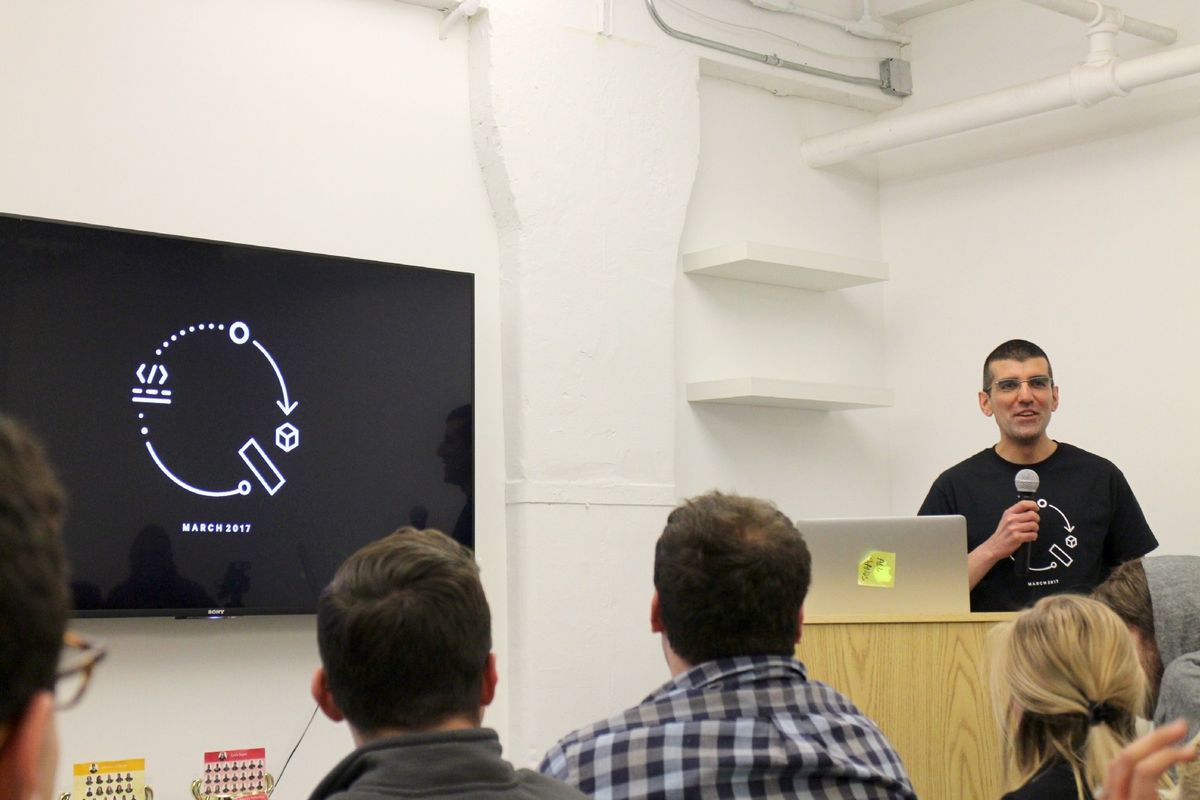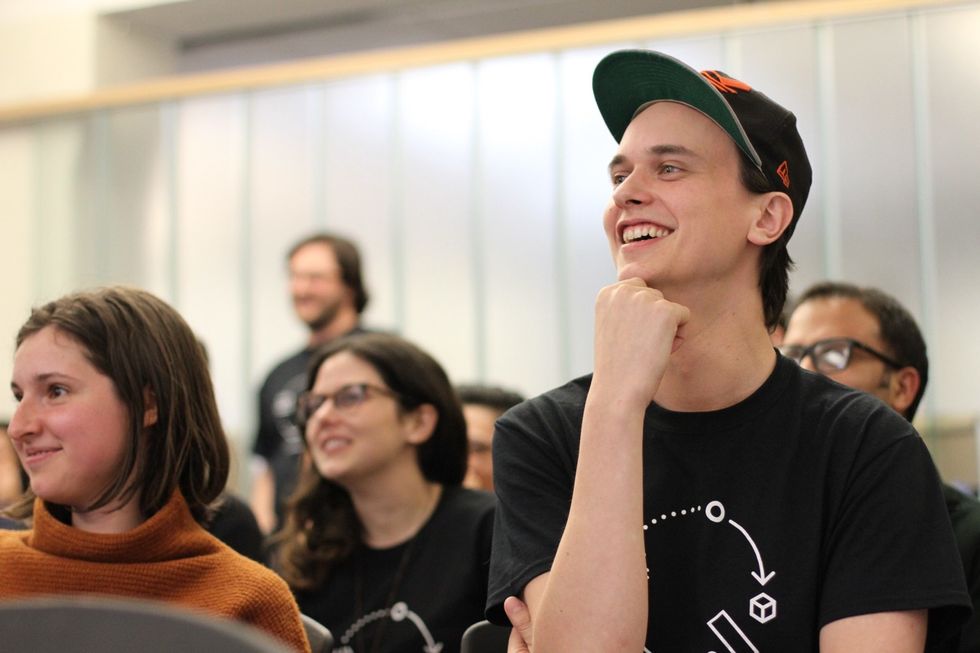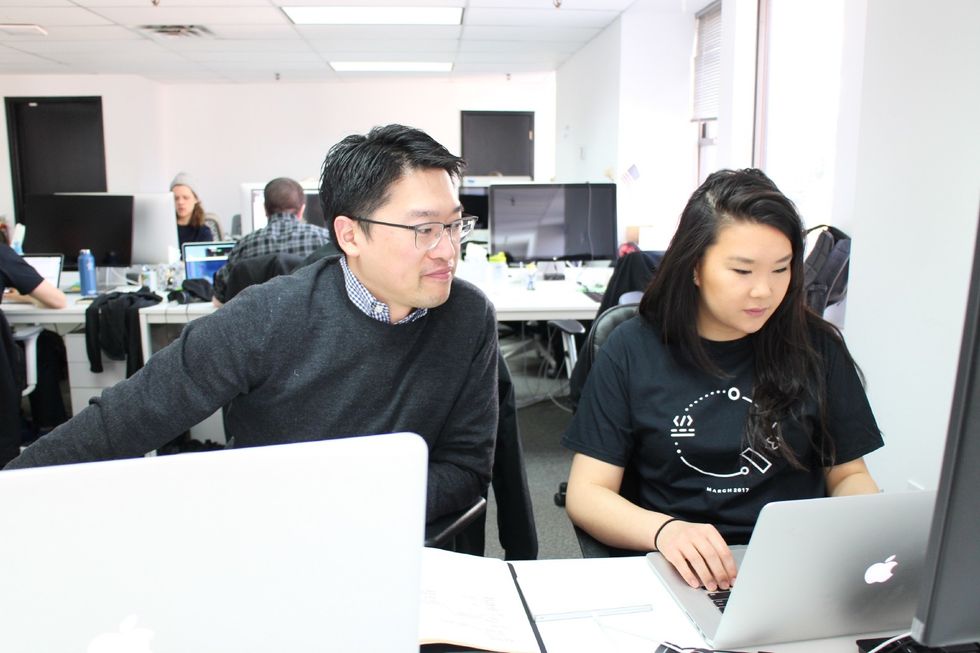Below is an article originally written by Rochelle DiRe at PowerToFly Partner Managed by Q, and published on April 4, 2017. Go to Managed by Q's page on PowerToFly to see their open positions and learn more.
The fluorescent-lit training room at Managed by Q was standing-room only. We were all cracking smiles, up on our toes or shifting in our seats, tipping beers, and scanning for a sign that things were beginning. We were all Ferris Bueller and we were in on the joke. Even the engineers seemed giddy. It was time for the reveal.
One by one, teams came up — we each had a strict two minutes to pitch our projects. The wave of delight and pride crescendoed when our newly-minted product manager, Chris Schilling, debuted SnapQuote, a product feature that would enable Q clients to request project quotes through a Snapchat-inspired mobile application. Chris demo-ed a trash hauling request and the room erupted. We were suddenly chanting "SNAP THAT JUNK" in unison, screaming like children or fans during March Madness.
It was 7 pm on a Friday night and the office felt like the best place on earth. Managed by Q had just wrapped its first Hack Day.
As Q's Chief People Officer, I was eager to decode what made Hack Day so distinct and gratifying. During my two decades of managing people and culture teams at companies ranging from Limewire to Martha Stewart Living to Quirky, I had never seen anything quite like it.
On Hack Day, we worked singlemindedly
Hack Day is a cloudless, meeting-free day. Liberated from the fragmentation of normal office existence, we suddenly sensed possibility. Unbroken concentration and a ticking clock meant a release from anything irrelevant to the task at hand. The daily arrhythmia of our always-on workplace was replaced by feverish intensity, camaraderie, and confidence. We were entirely focused on the goal at hand and we produced.
As Cal Newport has written, deep work — the ability to focus on one task without distraction and at the edge of your cognitive comfort zone — will be the 21st-century's competitive advantage and superpower for those who can master it.
With only a few hours to realize our projects, on Hack Day we devoted ourselves entirely to the work that moved the needle the fastest and farthest. Planning suddenly felt like a form of foreplay; focus on polishing felt like a form of procrastination.
On Hack Day, we erased the org chart.
Our Hack Day teams — acting without mandates or marching orders — brilliantly and effectively self-organized.
Without explicit goals, roadmaps, boundaries, or guidelines, the only people we had to please on Hack Day were ourselves. We looked to no one to criticize, rescue, or validate our ideas or projects. Institutional voices were silenced; shackles of hesitancy and self-consciousness were broken. We were absolved from the expectations and constraints of being a specialist or knowing all the answers — and in a twist, we ended up doing some of our best work.
Decision-making power flowed freely between people depending on the needs of the moment. The only organizing principle was to solve problems directly for our customer, or solve a pain point that plagued the company. Whoever could make progress on our issue won the moment. I was impressed when Jean, a senior product designer finishing up her fifth day at Q, rose to lead our team several times — and again when the baton was gracefully passed along to another teammate who could best maintain our momentum.
On Hack Day, we were all founders.
Hack Day catapulted me back to the experience of producing a play when I was a kid. When we are young, we happily and confidently assume every role: we are playwright, graphic designer, set designer. Our passion and joy in creation carries the day; collaboration is effortless. The production is bigger than our individual selves, we're invested in what needs to get done. Our only concern is what we are aspiring to build.
On Hack Day, infused with a 'let's put on a show' spirit, we assumed any role necessary to breathe life into our ideas, becoming product managers, designers, and project managers as needed. Hack Day was a reminder of why we work at a startup. By stepping outside the day-to-day, the risks we took filled the rooms with fresh air, the level of investment buoyed us with new energy.
On holiday from the Rube Goldberg machinery of typical office projects — and relieved from our own preconceptions of how 'work gets done' — Hack Day exposed the strength of our culture and unleashed the full passion, creativity and talent of our team.
Managed by Q is entering its 4th year of operations this month, and as we grow, we're determined to hold on to the spirit and tenacity that drove us in our first year. As our CEO Dan Teran Slacked that night after Hack Day, "if it doesn't feel like the early days, it's not worth doing."







